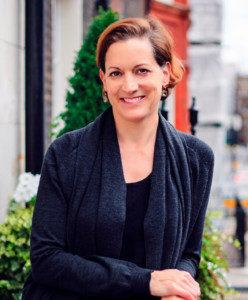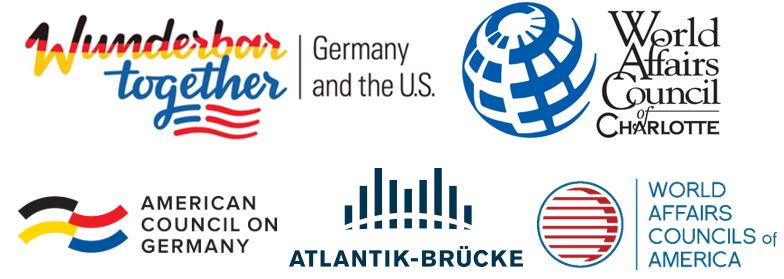
In recent years, public opinion surveys have indicated a rising level of distrust in democratic institutions and practices on both sides of the Atlantic. Populist movements have gained support and political divisions have deepened in many countries making political compromise and normal democratic governance increasingly difficult. Simultaneously, Western democracies are struggling to find an effective way of dealing with China and Russia — and their ever more authoritarian ways, as well as their attempts to undermine and influence democratic institutions in Europe and the United States. In response to these challenges, President Biden has called for a Summit for Democracy and the EU has launched its Conference on the Future of Europe – both meant to reinvigorate support and belief in democratic values and institutions.
In the United States, political polarization is at an all-time high, and Europe’s political splintering is weakening long-established parties. Citizens are unable to determine which news sources are trustworthy and are often influenced by fake news and conspiracy theories promulgated by both domestic and foreign actors.
What are some of the causes of these trends and what can be done to address them? Join WACC with Anne Applebaum on July 13th to find out.
Wunderbar Together!
Under the auspices of Wunderbar Together 2021, the World Affairs Councils of America, the American Council on Germany, and Atlantik-Brücke will partner with World Affairs Councils across the country to hold a series of virtual events that will focus on challenges to democracy in Germany, Europe, and the United States. The panels will center on the causes of this democratic malaise, analyze how serious these threats are, and examine what can be done to push back against those pressures and promote collaboration.
Program Information:
Date: Tuesday, July 13, 2021
Presentation and Q&A: 11:00 a.m. – 12:00 p.m. ET
Cost: Free and Open to the General Public
Biography:
Anne Applebaum is a staff writer for The Atlantic and a Pulitzer-prize winning historian. She is also a Senior Fellow at the Johns Hopkins School of Advanced International Studies and the Agora Institute, where she co-directs Arena, a program on disinformation and 21st century propaganda.
A Washington Post columnist for fifteen years and a former member of the editorial board, she has also worked as the Foreign and Deputy Editor of the Spectator magazine in London, as the Political Editor of the Evening Standard, and as a columnist at Slate as well as the Daily and Sunday Telegraphs. From 1988-1991 she covered the collapse of communism as the Warsaw correspondent of the Economist magazine and the Independent newspaper. Red Famine: Stalin’s War on Ukraine was published in October 2017. It received the Lionel Gelber Prize as well as the Duff Cooper prize in 2018. Her previous book, Iron Curtain: The Crushing of Eastern Europe, 1944- 1956, described the imposition of Soviet totalitarianism in Central Europe after the Second World War. Iron Curtain won the 2012 Cundill Prize for Historical Literature and the Duke of Westminster Medal, and was a National Book Award finalist.
She is also the author of Gulag: A History, which narrates the history of the Soviet concentration camps system and describes daily life in the camps, making extensive use of recently opened Russian archives as well as memoirs and interviews. Gulag won the Pulitzer Prize for non-fiction in 2004 and was also a National Book Award finalist. Anne Applebaum is also the co-author of a cookbook, From a Polish Country House Kitchen, and a recently republished travelogue, Between East and West: Across the Borderlands of Europe, which describes a journey across Lithuania, Belarus and Ukraine made in 1991, just before the break-up of the Soviet Union.
Over the years, her writing has also appeared in The New York Review of Books, The New Yorker, The Wall Street Journal, the New York Times, the Financial Times, the International Herald Tribune, Foreign Affairs, The New Criterion, The Weekly Standard, the New Republic, The National Review, The New Statesman, The Independent, The Guardian, Prospect, Commentaire, Die Welt, Cicero, Gazeta Wyborcza and The Times Literary Supplement, as well as in several anthologies.
She has lectured at Yale, Harvard, Stanford and Columbia Universities, as well as Oxford, Cambridge, London, Heidelberg, Maastricht, Zurich, Humboldt, Texas A&M, Houston and many others. In 2012-13 she held the Phillipe Roman Chair of History and International Relations at the London School of Economics. She received honorary doctorates from the Georgetown School of Foreign Service and Kyiv-Mohyla University.
Anne Applebaum was born in Washington, DC in 1964. After graduating from Yale University, she was a Marshall Scholar at the LSE and St. Antony’s College, Oxford. Her husband, Radoslaw Sikorski, is a Polish politician and writer. They have two children, Alexander and Tadeusz.



